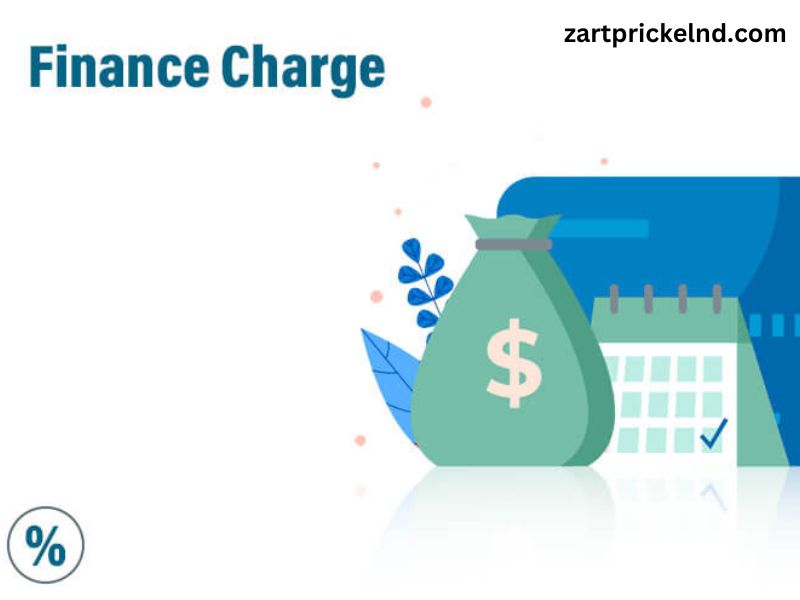Finance charges are the fees you pay for borrowing money or using credit. They are an essential component of any loan or credit agreement, and understanding them is crucial for managing your finances effectively. Finance charges can come in various forms, such as interest rates, annual fees, late payment fees, and over-the-limit fees, among others. Knowing how these charges work and how they impact your overall costs can help you make informed decisions about your financial obligations.
Types of Finance Charges
- Interest Rates: This is the most common type of finance charge, and it’s the cost of borrowing money. Interest rates can be fixed or variable, and they are typically expressed as an annual percentage rate (APR).
- Annual Fees: Many credit cards and loans come with an annual fee, which is a charge you pay simply for having the account open.
- Late Payment Fees: If you fail to make a payment on time, you may be subject to a late payment fee, which can be a flat rate or a percentage of the minimum payment due.
- Over-the-Limit Fees: If you exceed your credit limit, you may be charged an over-the-limit fee, which is an additional charge for going beyond your approved borrowing amount.
- Cash Advance Fees: When you use your credit card to obtain cash, you may be charged a cash advance fee, which is typically a percentage of the amount you withdraw.
How Finance Charges are Calculated
The way finance charges are calculated can vary depending on the type of loan or credit account. For example, with credit cards, the finance charge is typically calculated based on the average daily balance of your account during the billing cycle. For loans, the finance charge is often calculated as a percentage of the total amount borrowed, and it may be spread out over the life of the loan.
Common Misconceptions about Finance Charges
- Finance Charges are Unavoidable: While it’s true that you’ll likely have to pay some finance charges when borrowing money or using credit, there are ways to minimize these costs, such as by negotiating better terms or paying off your balances quickly.
- All Finance Charges are the Same: The various types of finance charges, such as interest rates, annual fees, and late payment fees, can have different impacts on your overall costs and should be considered separately.
- Finance Charges Don’t Affect Your Credit Score: In fact, your payment history and the amount of debt you carry can have a significant impact on your credit score, which can affect your ability to borrow money in the future.
The Importance of Understanding Finance Charges
Understanding finance charges is crucial for several reasons:
- Cost Awareness: Knowing the true cost of borrowing money or using credit can help you make more informed financial decisions and avoid unexpected expenses.
- Budgeting and Planning: Incorporating finance charges into your budget can help you better manage your cash flow and avoid late payments or over-the-limit fees.
- Negotiation and Optimization: Understanding finance charges can empower you to negotiate better terms with lenders or find ways to minimize these costs, such as by transferring balances to a lower-interest credit card.
How to Minimize Finance Charges
Here are some strategies for minimizing finance charges:
- Pay Your Bills on Time: Avoid late payment fees by making sure your payments are received by the due date.
- Pay More Than the Minimum: Paying more than the minimum payment on loans and credit cards can help you pay off your balances faster and reduce the overall interest you’ll pay.
- Take Advantage of Grace Periods: Many credit cards offer a grace period, which is a window of time between the close of the billing cycle and the payment due date during which you can avoid interest charges if you pay your balance in full.
- Negotiate Better Terms: If you have a good credit history and a strong relationship with your lender, you may be able to negotiate lower interest rates, annual fees, or other finance charges.
Tips for Negotiating Lower Finance Charges
- Know Your Credit Score: Understand your credit score and how it affects your ability to negotiate better terms.
- Research the Competition: Compare the finance charges offered by other lenders to have a benchmark for your negotiations.
- Be Polite and Persistent: Approach the negotiation process with a positive attitude and be prepared to make a compelling case for why you deserve better terms.
- Consider Balance Transfers: If you have high-interest credit card debt, you may be able to transfer the balance to a card with a lower introductory APR, which can save you money on finance charges.
Legal Regulations on Finance Charges
Finance charges are subject to various legal regulations, such as the Truth in Lending Act (TILA) in the United States, which requires lenders to disclose the APR and other key terms of a loan or credit agreement. These regulations are designed to protect consumers and ensure that they have the information they need to make informed financial decisions.
How Finance Charges Affect Your Credit Score
Your payment history and the amount of debt you carry, including finance charges, can have a significant impact on your credit score. Late payments, high balances, and excessive finance charges can all negatively affect your credit, making it more difficult to borrow money or obtain favorable terms in the future.
Conclusion
Finance charges are an essential part of any loan or credit agreement, and understanding them is crucial for managing your finances effectively. By knowing the different types of finance charges, how they are calculated, and strategies for minimizing them, you can make more informed decisions and avoid unexpected expenses. Remember, staying informed and proactive about your finances can help you achieve your financial goals and maintain a healthy credit profile.
To learn more about managing your finances and minimizing finance charges, consider signing up for our free personal finance newsletter. In it, you’ll find expert tips, tools, and resources to help you take control of your money and reach your financial goals. Sign up today and start your journey to financial freedom!



